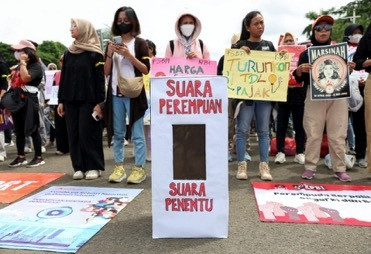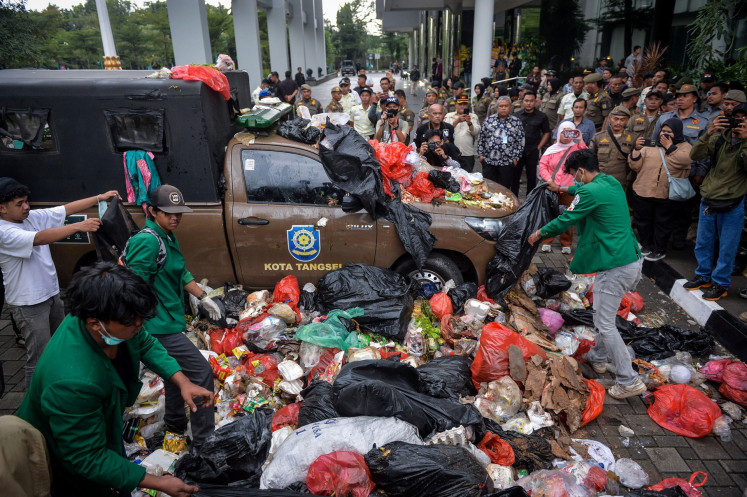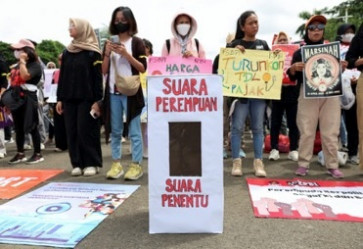Popular Reads
Top Results
Can't find what you're looking for?
View all search resultsPopular Reads
Top Results
Can't find what you're looking for?
View all search resultsTime to overcome our male Javanese Muslim bias
Issues of diversity, including gender and ethnicity, are increasingly salient in Indonesia. However, policymakers have failed to overcome the bias at both the personal and institutional level, which perpetuates inequality.
Change text size
Gift Premium Articles
to Anyone
 Women’s reps: A group of people takes part in a rally supporting women's rights and gender equality on Thursday in Jakarta to mark International Women's Day, which falls each year on March 8, 2024. The rally also called for President Joko “Jokowi” Widodo to be impeached over his alleged abuse of power. (Reuters/Ajeng Dinar Ulfiana)
Women’s reps: A group of people takes part in a rally supporting women's rights and gender equality on Thursday in Jakarta to mark International Women's Day, which falls each year on March 8, 2024. The rally also called for President Joko “Jokowi” Widodo to be impeached over his alleged abuse of power. (Reuters/Ajeng Dinar Ulfiana)
I
ndonesia is home to one of the world’s most diverse societies, with more than 1,300 ethnic groups. Yet, 40 percent of the total population is Javanese and close to 90 percent is Muslim.
And even though half of the population is female, less than 25 percent of the legislative seats are held by women. Two of the three 2024 presidential candidates were male Javanese Muslims, and all of them were born and raised in Java.
Male Javanese Muslims hold the power and there is no sign that the status quo, which has been the default since Indonesia’s independence in 1945, will change anytime soon.
This male-Javanese-Muslim default, which resembles that of the White Anglo-Saxon Protestant in the United States, creates a bias in the way our leaders shape the direction of policy, write laws and regulations and implement programs. Although Indonesia has made some progress in promoting gender and ethnicity-based equality, the gains are limited because the lens our leaders use is one where they approach these social challenges in silos.
For example, even though the sexual violence law was a win for women of all ethnicities and religions, its passage was a long and hard process. This law includes key legal provisions for the protection and recovery of sexual violence victims.
It took the legislation 10 years to materialize, one issue being the conservative Islamist parties blocking the passage of the law.
In the case of revised Law No. 21/2001 on special autonomy for Papua, many argue that it was pushed rather unilaterally and without enough consultation with Papuans. This new law relates to the affirmative action of indigenous Papuan and West Papuan people in political and economic affairs.


















